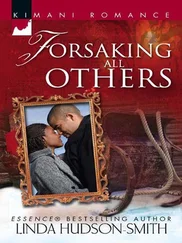He has a family too.
Actually, James Tiptree, Jr.’s Warm Worlds and Otherwise gives The Wind’s Twelve Quarters, Vol II a run for its money. I’d say the Le Guin is still ahead, but it’s not as clear-cut as I thought it was. The other two books in the package from my father today are both Zelazny. I haven’t started them yet. Creatures of Light and Darkness was awfully peculiar.
Thursday 4th October 1979
Nine Princes in Amber and The Guns of Avalon are absolutely brill. I’ve done nothing but read them for the last two days. The concept of Shadow is amazing, and the Trumps too, but what makes them so good is Corwin’s voice. I have to read more Zelazny.
A letter from Auntie Teg came today, sounding very relieved to know I am well. She sent me a pound note, inside the letter. There’s lots of family news. Cousin Arwel is starting a new job with British Rail in Nottingham. Auntie Olwen is on the list for a cataract operation. Cousin Sylvie’s having another baby—and Gail’s not two yet! Uncle Rhodri’s getting married. She doesn’t say anything about my mother. I didn’t expect her to. I didn’t either. I didn’t tell her about abandoning art for chemistry. She teaches art; she wouldn’t understand. Chemistry and physics and Latin are my three favourite subjects, though my very highest marks are in boring old English, as usual. We’re reading Our Mutual Friend , which I secretly call Our Mutual Fiend . You could re-write it with that title to make Rogue Riderhood the one they all know.
My grandfather’s father was French. He came from Rennes in Brittany, and his mother was Indian, from India. He was very dark-skinned, from all accounts, and my grandfather and his sisters were also quite dark—all dark-haired and dark-eyed, and with skin that tanned browner than any European skin. My mother was the same. Grampar despised our skins for burning in the sun. Alexandre Rennes changed his name to Phelps when he married my great-grandmother Annabelle Phelps, because she wouldn’t marry him on any other terms. He worked in the mines. She was one of eight children, had seven children herself, of whom five survived to adulthood, lived to be ninety-three, and was a tyrant all her life. She died the year before I was born, but I grew up on stories of her.
Because Alexandre was French, they spoke English at home, unlike my grandmother’s family, who always spoke Welsh by choice. Their five surviving children all married and had children of their own.
The eldest boy, Alexander, married on the eve of the Great War, and left his new wife pregnant when he went to the trenches. He never came back, and they had a telegram saying he was missing in combat. His young wife, my Auntie Bessie, moved in with her parents-in-law, had the baby, my Uncle John, and was generally, along with Auntie Florrie, treated as my great-grandmother’s unpaid servant. Then, years later, in 1941, a young woman got off the bus in Aberdare with two solemn-eyed little boys, my uncles Malcolm and Duncan. She went to my great-grandmother’s house, claiming to be the widow of her son Alexander. He hadn’t died at all, he’d stayed in the army and gone off to India, where he’d married again without the formality of a divorce from Auntie Bessie.
His second wife, Lillian, was English, had grown up in India and had a little money of her own. She was used to living in a hot country and having servants. My great-grandparents took her in, which some people thought very good of them in the circumstances, but she found living with them very difficult. After a while, she talked to Auntie Bessie, who had a small widow’s pension, and they discovered that between the two of them they could afford a tiny house of their own. By the time I was born the scandal was old news—I knew that they were both the widows of the same man, but what could you say? He was dead, after all. The two widows got on very well. They spent the war knitting socks for soldiers, then after the war opened a wool shop in their front room, where they sold wool and home-knitted items. It had a strange animal smell, which they tried to hide with bowls of dried lavender from Auntie Florrie’s garden, the first potpourri I ever saw.
My grandfather had three sisters, who all married and had children. One, Auntie Maudie, disgraced herself by marrying a Catholic and going off to live in England, where she had eleven children, the last a Mongol, and adopted four more, two of them African. I do not regard this as shocking, if she could care for them all, which she could. She had been my grandfather’s favourite sister, but now they couldn’t be together without quarrelling. She was a lot like her mother. I didn’t see what was so utterly shocking about being a Catholic, compared to being a bigamist, which everyone forgave dead Alexander, or a lesbian, like Auntie Olwen, which people didn’t talk about but quietly accepted.
Auntie Bronwen had three sons and a daughter, and her husband worked in the pit. Auntie Florrie lived very near us and we saw her all the time—my grandmother used her for babysitting. Her husband, who had been a miner, died in the war. She had two little boys, my Uncle Clem, who went to prison for forgery, and Uncle Sam, who never seemed to come home. She had seen the devil in her house one day and chased it upstairs with a prayerbook and shut it in the box room. Afterwards, she asked my grandfather to brick up the door to the box room so the devil couldn’t get out. Years later, after she died, he unbricked the door and we went in, consumed with curiosity, to find a printing press. He threw it out, but not before we helped ourselves to a number of blank calling cards and some of the leaden letters.
My grandfather, Luke, was the youngest, and he married my grandmother, Becky, and they had two children, Elizabeth and Tegan. My mother, Liz, married my father and had us. Auntie Teg never married anyone, because she was always busy helping to bring us up. In most ways she was more like a much older sister than an aunt.
I miss her a lot, and Grampar too.
Saturday 6th October 1979
Beautiful day today, best day since I got here.
I got into town before the library closed and tried to join it. They wouldn’t let me. I was remarkably restrained and didn’t cry or raise my voice or anything. They said they needed a parent’s signature, and they needed proof of residence. I told them I was at Arlinghurst, as if they couldn’t see that for themselves from the uniform. When outside we have to wear a navy gymslip, a navy blazer, a school raincoat (if raining, but it’s always raining, except today the sun was shining) and a school hat. The winter hat is a beret. There’s a straw boater for summer. The hat is entirely penitential for me; it always wants to fall off my head when I move.
The librarian, who was a man, quite young, said that if I was at Arlinghurst I should use the school library. I said that I did, and that it was inadequate to my needs. He actually looked at me then, pushing his glasses up his nose, and for a moment I thought I’d won, but no. “You need a parent’s signature on this form, and a letter from the school librarian saying you need to have the use of the library,” he said. Behind him were all these shelves of books, stretching out. He wouldn’t even let me in to browse.
However, I found a bookshop, and a little bit of wild ground. The shopping bit of Oswestry is basically two streets with a market cross at the top, with a market. The library, which is a typical Victorian library building, is just off there. Last time, that’s all I saw—the bus stops at the bottom of the hill and the library is essentially the top of it. But there’s a road that curves down to the left and I thought it might go around to where the bus stop is. It didn’t, and it got very residential and I thought I was going to have to go back, but then there was another curve and a pond, with mallards and white swans on it and trees around, and on the other side of the road, a little parade of shops, and one of them a bookshop.
Читать дальше
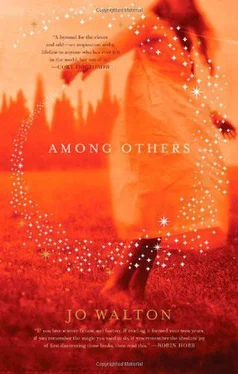


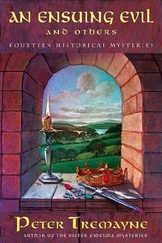
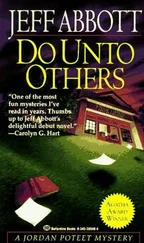
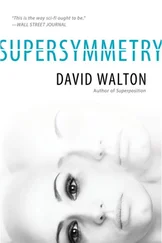

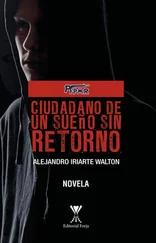


![Brian Thompson - A Monkey Among Crocodiles - The Life, Loves and Lawsuits of Mrs Georgina Weldon – a disastrous Victorian [Text only]](/books/704922/brian-thompson-a-monkey-among-crocodiles-the-life-thumb.webp)
